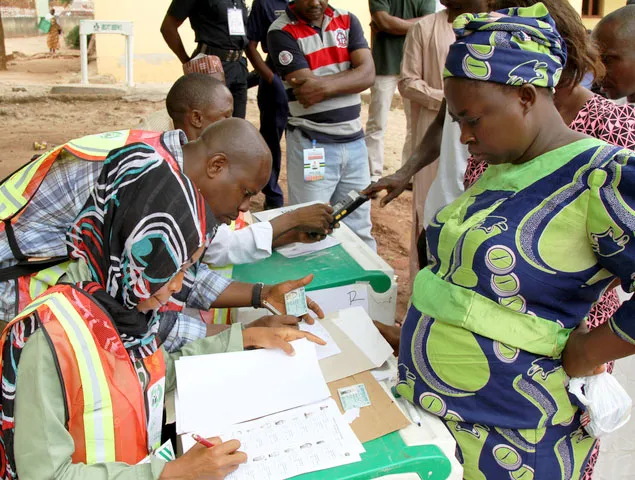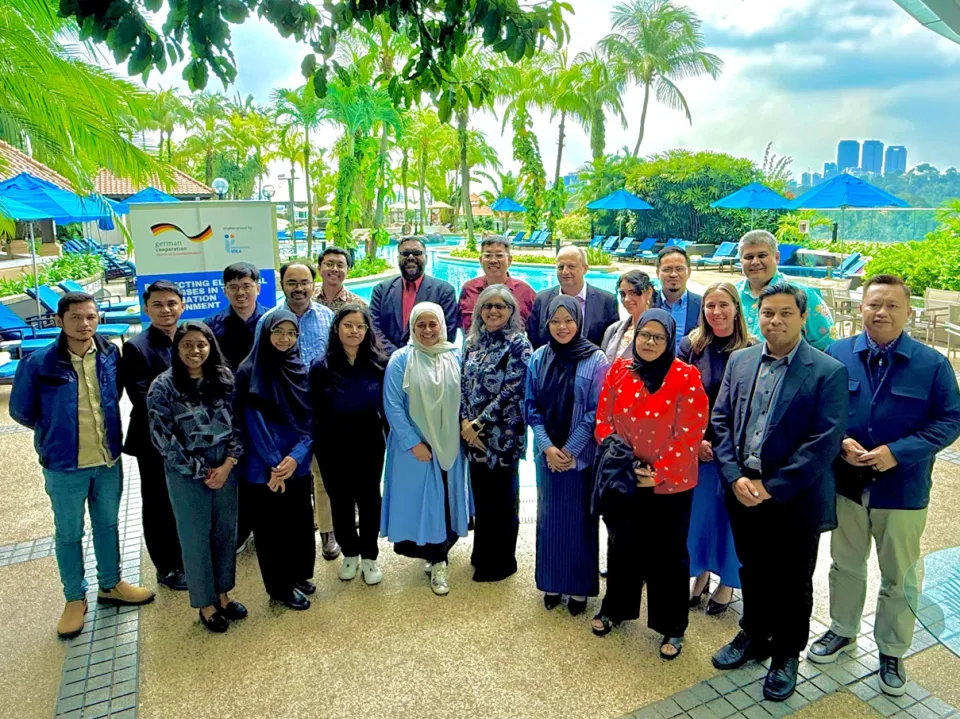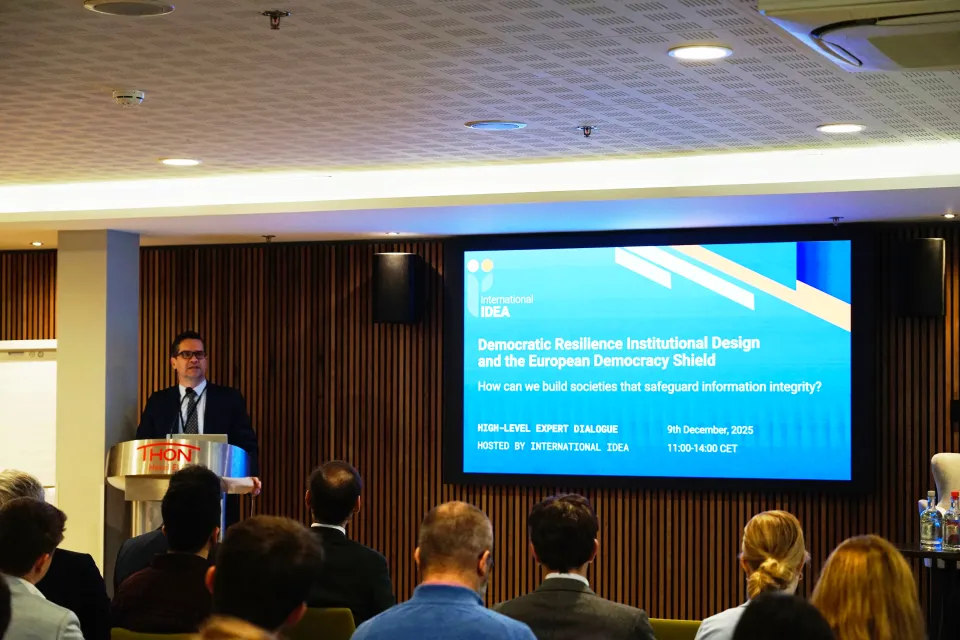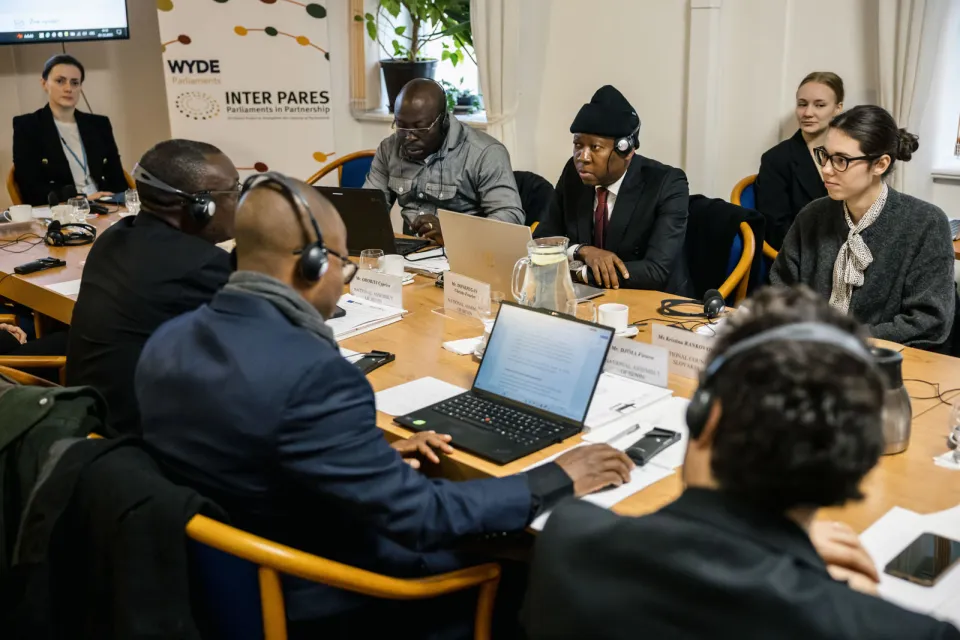Lowering the age limit to increase youth participation in politics

The low level of youth participation in political life is one of the biggest challenges facing representational democracy across the globe. In recent years, many countries have seen a sharp increase in their youth population. Over half the world’s population of 7.4 billion is currently aged between 20 and 44. In Africa, a combination of high fertility rates and low life expectancy has resulted in a “youth bulge”. According to United Nations Department of Economic and Social Affairs, about 70 per cent of the continent’s population is under the age of 30. Because the level of engagement in politics by youth remains lower than that of older generations, Africa’s youth bulge is leading to an emerging crisis of representation.
This makes increasing youth engagement in African politics vital to advancing democratic development. From a normative point of view, youth engagement is pivotal to ensuring inclusive participation and protecting fundamental political and democratic rights. Beyond the theoretical considerations surrounding norms and values linked to equal participation, inclusion and representation, it is also important to acknowledge that youth engagement is about practical politics. Younger cohorts have grown up in different cultural, social, economic, political and, crucially, technological contexts to older generations and simply have different experiences, ideas and solutions to bring to the table.
However, young people remain marginalized from formal political processes. They are less likely to be elected to parliament or members of political parties; and also less likely to vote or even be registered to vote in elections. Research carried out by Afrobarometer shows that youth are interested in politics but less likely to convert this interest into activity during elections. According to a report on youth participation in national parliamentspublished by the Inter-Parliamentary Union (IPU) earlier this year, people under the age of 30 make up only 2 per cent of parliamentarians around the world. Moreover, about 30 per cent of single OR unicameral or lower houses of parliament and 80 per cent of upper houses of parliament contain no members under 30. In other words, from a representational point of view, youth are grossly underrepresented on the national political stage.
At the same time, young people are critical to social and political transformation, as demonstrated by recent historical events such as the Jasmine Revolution in Tunis of 2011 and the Burkinabe uprising in Burkina Faso in 2014. Over the past few years, major youth protests have also been registered on the cultural-music stage, such as Y'en a marre in Senegal; and through social media, as in for example #feesmustfall in South Africa. Although less active in formal political processes, young people are showing both an interest in and dedication to democracy and politics. In this regard, one of the keys to successfully addressing the challenge posed by low levels of youth participation is to get young people elected to office.
It is important to note that specific age-related eligibility requirements in order to stand for office represent a key barrier to youth representation in the decision-making positions within democratic institutions such as parliaments. With the exception of Cameroon, Gabon and Côte d’Ivoire, African youth are eligible to vote from the age of 18. The legal age for standing for election in national parliaments, however, is often higher. To be on the ballot for the House of Representatives and the Senate in Nigeria, for example, candidates must have reached the age of 30 and 35, respectively.
In Conversation with Samson Itodo
The Youth Initiative for Advocacy Growth & Advancement is a youth-led NGO that promotes youth participation in politics and elections in Nigeria. YIAGA is currently implementing the #NotTooYoungToRun campaign, which aims to lower the legal barriers to young people standing in elections. We had a chat with Samson Itodo, from YIAGA’s Research and Advocacy Unit, to hear more.
International IDEA: What is the status of youth participation in national-level politics today and what would you say are the three main challenges to effective youth engagement in Nigerian political life?
Itodo: Participation by youth in national-level politics is not only pitiful but a threat to electoral justice, equity and fairness. Young people are excluded from qualitative participation in the political process. This is exemplified by the failure of the ruling political class to share power with young people and the inability of young people to utilize their social and political capital to influence politics and shift the balance of power in favour of youth. No young people have ever been appointed to the federal cabinet and the Minister of Youth Development is 52 years old. In the aftermath of the 2015 election, only three people under 35 made it to the federal House of Representatives. Weak and undemocratic political parties, constitutional age restrictions and money politics are some of the key obstacles militating against effective youth engagement in Nigerian political life.
YIAGA is one of the main youth-led organizations working in this field in Nigeria. What kind of work is your organization focused on specifically?
Itodo: YIAGA is a youth civic hub working to build sustainable democracies anchored on the principles of youth inclusion, accountability, justice and equity. YIAGA’s mission is to empower state and non-state actors with the relevant tools and knowledge for enhancing democracy and development in Africa. YIAGA focuses on in-depth research, capacity development and policy advocacy on issues related to elections, legislative engagement, youth development, social movements and public accountability. YIAGA supports state institutions such as the Independent National Electoral Commission (INEC), the Federal Ministry of Youth Development and the National Assembly. YIAGA builds the capacity of youth organizations at the local, national and international levels for effective organization and advocacy on democratic governance issues.
Tell us more about the #NotTooYoungToRun campaign – what are the goals and how are you trying to get there? Have you made any progress since the campaign started?
Itodo: The #NotTooYoungToRun Campaign is a movement of over 80 youth civil society organizations working to promote the passage of legislation that reduces the age limit for contesting elections in Nigeria. The movement is committed to mobilizing citizens to engage with the legislature during the ongoing constitution review process using social media, parliamentary committees, public demonstrations, debates, lobbying, and so on, to demand a reduction in the age of eligibility to stand as a political candidate.
The #NotTooYoungToRun bill seeks to alter sections 65, 106, 131 and 177 of the 1999 Constitution of the Federal Republic of Nigeria (as amended) to reduce the age of qualification for the office of President, Governor and Member of the House of Representatives from 40 to 30, 35 to 30 and 30 to 25, respectively. The bill also seeks to mainstream independent candidacy into Nigeria’s electoral process. If passed, the bill will address the legal obstacles to young people standing in elections, thereby enhancing inclusion in Nigeria’s political process. The amendment will not only create a level playing field for young people, but also enhance the competitiveness of electoral politics in Nigeria due to the innovation, creativity, dynamism and resourcefulness that youths bring to the electoral process. Furthermore, the bill will deepen intergenerational dialogue as more youths gain access to the political process, leading to increased adult-youth engagement and partnership. The bill is currently under consideration by the Constitution Review Committee of the House of Representatives, having passed its first and second reading.
Nigeria boasts Africa’s most Internet- and social media-savvy youth population. How are digital platforms influencing the way young Nigerians participate in political life?
Itodo: Digital platforms have greatly influenced the way we think as young people. The Internet and social media have stimulated active citizenship among young Nigerians. Beyond expanding the frontiers of information sharing, digital platforms are empowering young people to hold government accountable and demand transparency in public governance. This is exemplified by the array of youth-led digital campaigns on legislative openness, campaign promise monitoring and performance scorecards. Young people are using social media to promote electoral transparency in elections. Their use of Twitter, WhatsApp and Facebook to report critical incidents, is enhancing the credibility of elections and promoting non-violence. Today, young people are being appointed to media portfolios due to the increased role that technology is playing in shaping public governance and citizen participation.



